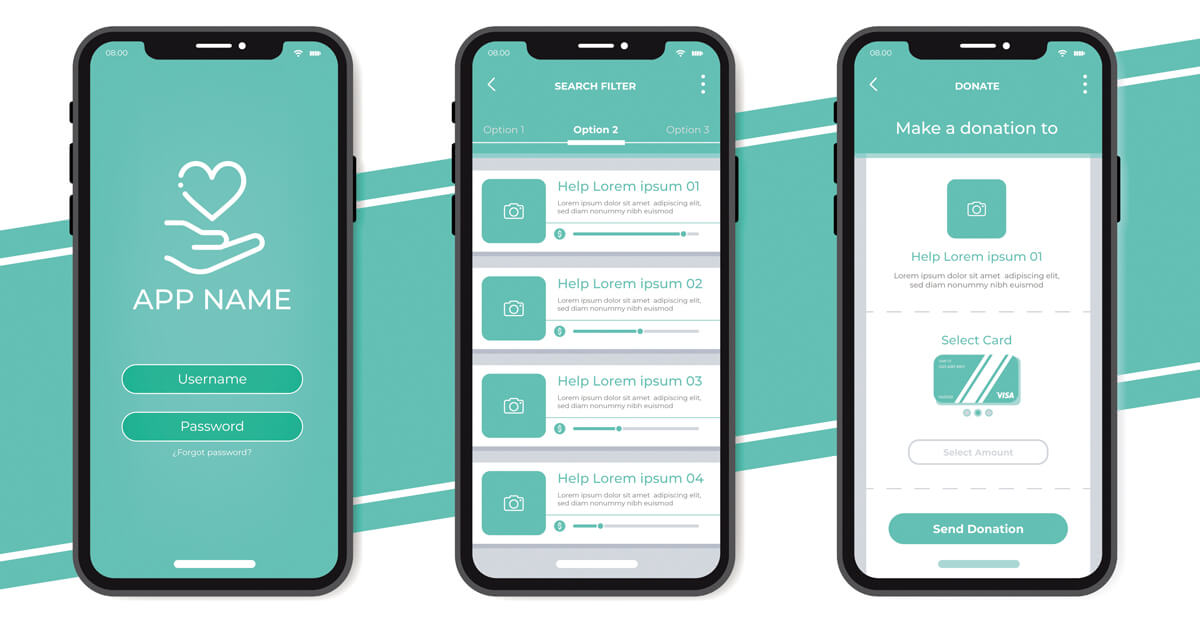Mobile applications have revolutionized the way businesses operate globally, and Kenya is no exception. In recent years, mobile apps have become a key driver of business growth and innovation across various sectors. From agriculture to finance and e-commerce, mobile apps are enabling businesses to reach more customers, streamline operations, and enhance service delivery. In this post, we explore how mobile apps are transforming business in Kenya and why adopting this technology is crucial for staying competitive in today’s fast-paced market.
1. Increased Accessibility and Reach
Kenya is one of the leading mobile-first countries in Africa, with a large percentage of the population using mobile phones as their primary means of communication and internet access. This widespread mobile penetration has created a unique opportunity for businesses to reach customers more easily and effectively.
Mobile apps allow businesses to tap into new markets, including underserved rural areas where internet access might be limited. With a mobile app, companies can provide their products or services directly to customers’ smartphones, regardless of their location. This not only increases accessibility for customers but also helps businesses expand their market reach without the need for expensive physical infrastructure.
2. Enhanced Customer Engagement
Customer engagement is critical to business success, and mobile apps are an excellent tool for enhancing interactions with clients. With push notifications, personalized content, and real-time updates, businesses can keep their customers informed and engaged at all times.
For example, mobile apps enable businesses to send promotional offers, updates about new products, and reminders about upcoming events or sales directly to customers’ smartphones. This personalized and immediate communication fosters stronger relationships and encourages repeat business. Furthermore, mobile apps allow customers to interact with businesses through feedback systems, support channels, and loyalty programs, improving the overall customer experience.
3. Revolutionizing the Financial Sector
Kenya has long been a leader in mobile banking and mobile money services, with platforms like M-Pesa revolutionizing financial inclusion. Mobile apps have become an essential tool for facilitating digital payments, managing finances, and providing access to financial services for people who are otherwise excluded from traditional banking.
For businesses, this means seamless payment integration, faster transactions, and more convenient ways for customers to make purchases or pay for services. Mobile apps also make it easier for businesses to track financial transactions, monitor cash flow, and optimize pricing strategies based on real-time data.
4. Driving Innovation in Agriculture
In Kenya, agriculture remains a vital sector of the economy, and mobile apps are playing a significant role in modernizing this industry. Farmers can now access real-time weather updates, market prices, and agricultural advice through mobile apps. These apps help farmers make informed decisions about planting, harvesting, and selling their crops, ultimately improving productivity and profitability.
Mobile apps also facilitate supply chain management by enabling farmers to connect directly with buyers, wholesalers, and suppliers. This reduces intermediaries and ensures fairer pricing, benefiting both farmers and consumers. With mobile technology, the agricultural sector is becoming more efficient and accessible, promoting sustainable development across Kenya.
5. Empowering E-Commerce and Retail
Kenya’s e-commerce sector has seen exponential growth in recent years, driven in part by the widespread adoption of mobile technology. Mobile apps have become a crucial tool for online shopping platforms, allowing businesses to provide a seamless and personalized shopping experience for customers.
Consumers can browse products, make purchases, and track deliveries directly from their mobile devices. Additionally, mobile apps enable businesses to leverage data analytics to understand customer preferences, optimize inventory management, and tailor marketing efforts to specific segments. This level of convenience and customization is helping businesses in Kenya thrive in the competitive e-commerce space.
6. Streamlining Operations and Improving Efficiency
Mobile apps are not just for customer-facing services; they also offer powerful tools for internal operations and management. For businesses in Kenya, mobile apps can help streamline processes such as inventory management, staff scheduling, and supply chain logistics.
By automating repetitive tasks and providing real-time data, mobile apps increase operational efficiency and reduce the likelihood of errors. For example, businesses can use mobile apps to track inventory levels, monitor sales performance, and ensure that staff are meeting targets and deadlines. This leads to faster decision-making and improved overall productivity.
7. Contributing to Job Creation and Economic Growth
The widespread use of mobile apps has also led to job creation in Kenya. The demand for skilled app developers, UX/UI designers, and digital marketers is on the rise as more businesses recognize the importance of having a mobile presence. Additionally, mobile apps have created opportunities for entrepreneurs to develop innovative solutions tailored to local needs.
From food delivery services to ride-sharing platforms and mobile-based education solutions, the growth of mobile apps has created a thriving tech ecosystem in Kenya. This has, in turn, contributed to the country’s economic growth by fostering innovation, increasing access to services, and supporting job creation.

No responses yet